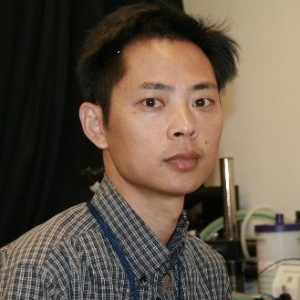Title : J147 treatment protects against traumatic brain injury by inhibiting neuronal endoplasmic reticulum stress via the AMPK/ SREBP-1 pathway
Abstract:
Endoplasmic Reticulum (ER) stress is recognized as a crucial contributor to the progression of Traumatic Brain Injury (TBI) and represents a potential target for therapeutic intervention. This study aimed to assess the potential of J147, a novel neurotrophic compound, in alleviating ER stress by modulating related signaling pathways, thereby promoting functional recovery in TBI. To this end, adult mice underwent Controlled Cortical Impact (CCI) injury to induce TBI, followed by oral administration of J147 one hour post-injury, with daily dosing for 3 to 7 days. Multiple behavioral assessments were conducted over 35 days, revealing a significant, dose-dependent improvement in neurofunctional recovery with J147 treatment. Neuropathological analysis demonstrated reduced acute neurodegeneration (observed at 3 days through FJC staining), enhanced long-term neuron survival (H&E and Nissl staining), and improved neuroplasticity (Golgi staining) at 35 days post-TBI. At the molecular level, TBI induced AMP-activated protein kinase (AMPK) dephosphorylation, sterol regulatory element binding protein-1 (SREBP-1) activation, and upregulation of ER stress marker proteins, including phosphorylated eukaryotic initiation factor-2α (p-eIF2a), activating transcription factor 4 (ATF4), and C/EBP Homologous Protein (CHOP) in perilesional cortex neurons at 3 days post-injury. Notably, J147 treatment significantly attenuated AMPK dephosphorylation, SERBP-1 activation, and expression of the ER stress markers. In summary, this study reveals the therapeutic promise of J147 in mitigating secondary brain damage associated with TBI and improving long-term functional recovery by modulating ER stress pathways.
Keywords: J147; AMPK; SREBP; ER stress; Traumatic brain injury




